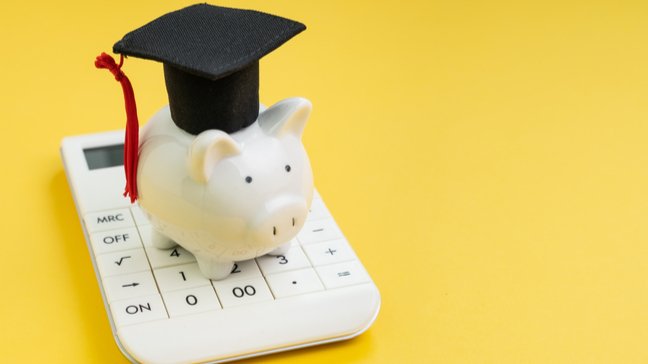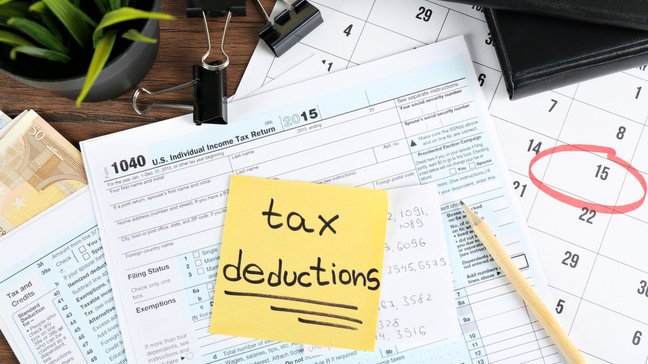
Thanks to early pandemic relief efforts, countless Americans have caught a rest on student loan payments over the last year.
It’s a way for borrowers to focus on more pressing financial matters as the economy — not to mention employment — recovers in the COVID-19 pandemic.
You are not alone if you are worried about the way the education loan freeze will affect your annual tax bill. Fortunately, should you took advantage of the payment pause, it won’t mean a rise in taxes. Generally, you’re probably due a valuable deduction instead.
The education loan payment freeze

Under the CARES Act — that was passed in March 2022 — borrowers with federal student loans could stop making monthly obligations through September 30, 2022. That deadline was pushed back many times, as well as in January, President Biden extended the deadline once again.
Now, borrowers with federal student education loans won’t desire to make payments until at least October 2022, bringing the student loan pause up to about 1 . 5 years total.
To be clear: the freeze only applies to federal loan borrowers. Americans with private student loans — which amount to more than 8% of total outstanding education loan debt in the U.S. — aren’t eligible for the payment pause and have continued making payments normally.
For federal borrowers, though, it’s been a welcome break, creating more cash flow and reducing financial stress considerably for the past year.
Will you pay taxes on the paused amount?
The short answer is no; should you took benefit of the government payment pause, you do not have to pay for taxes around the skipped amount.
That’s because the payment pause is what’s known as a loan forbearance — an agreement that permits you to stop making payments because of hardship or some other extenuating circumstance, just like a pandemic, for example.
With a forbearance, those skipped payments aren’t forgiven or erased; they’re simply delayed, and you’ll still need to reimburse them at a later date. The instalments might be added to the end of your loan term, or you might make higher monthly payments once the freeze ends (the precise plan is determined by your servicer and different situation, though).
Spoiler: you might actually qualify for a deduction

If that wasn’t good enough news, I’ll would you one better. Despite taking a break out of your payments, you could actually be due a deduction come tax day.
It’s true: because of the CARES Act’s timing, you probably made at least a few education loan payments this past year (probably January through March). If you did, those payments would qualify you for a valuable deduction known as the student loan interest deduction.
The Student Loan Interest Deduction lets you deduct the interest you paid on student education loans out of your taxable income. So if you made $50,000 last year and paid $1,250 in education loan interest between January through March, you’d only pay taxes on $48,750 of this income ($50,000 minus $1,250).
If you've private student education loans, you’d likely see an even bigger deduction. Since private student education loans don’t qualify for the payment pause, most borrowers have been making their monthly payments as scheduled. When compared with federal borrowers, it likely means an even bigger deduction — 12 months of interest versus 3 months, generally.
How much education loan interest can you deduct?
Unfortunately, you can’t always deduct all the education loan appeal to you paid in the last twelve months, because the IRS caps this deduction at $2,500.
So, if you paid $4,000 in curiosity about 2022, you could only deduct the first $2,500 out of your income. Should you paid $2,000 in interest, though, you’d be able to write the entire bill off, granted you meet the proper requirements.
There will also be exactly what the IRS calls “phaseouts,” which reduce your deduction based on all your family members income and tax filing status. Essentially, the more money you are making, the less interest you can deduct. If you make money (over $85,000 for single filers and $170,000 for married people), then you definitely can’t take the deduction at all.
Qualifying for the education loan interest deduction

To entitled to the education loan interest deduction, there are a few requirements you’ll have to meet first. For just one, your loans should have been taken out just for educational purposes and used at an eligible educational institution — meaning one that participates within the Department of Education’s student aid program.
You’ll also need to file your taxes either as a single filer, head of household, qualifying widower, or a married couple filed jointly. IRS rules stipulate that if you’re married but file your returns separately, you won’t be eligible. If you’re claimed as a dependent on someone else’s tax returns — like your parents, for example, you can’t claim it either (though they can.)
Additionally, there are also income caps you will have to fall under. These caps also influence your total deduction. Here’s how that breaks down by tax filing status:
| 2022 tax filing status | Modified adjusted gross income for 2022 | Total student loan deduction |
|---|---|---|
| Single filer, Head of household, or Qualifying widower | $70,000 or less | Full $2,500 deduction |
| Single filer, Head of household, or Qualifying widower | $70,001 to $85,000 | Slightly reduced deduction |
| Single filer, Head of household, or Qualifying widower | $85,001 or more | No deduction |
| Married filing jointly | $140,000 or less | Full $2,500 deduction |
| Married filing jointly | $140,001 to $170,000 | Slightly reduced deduction |
| Married filing jointly | $170,001 or more | No deduction |
If you fall within the “slightly reduced” bucket, the government has a worksheet that will help you determine exactly how much you are able to deduct for just about any given year. It basically depends on how much you go over that $70,000 or $140,000 mark.
Summary
The education loan payment freeze is a welcome break for many borrowers, and tax day shouldn’t change that. In fact, if you took advantage of the pause, there’s a good chance you’re still due valuable deductions, which could reduce your taxable income and increase that final refund.
If you’re unsure about how has given affect your taxes — or else you need assistance filing your returns — get in touch with a qualified tax professional or financial advisor for help. They can make certain you’re on the right track.








